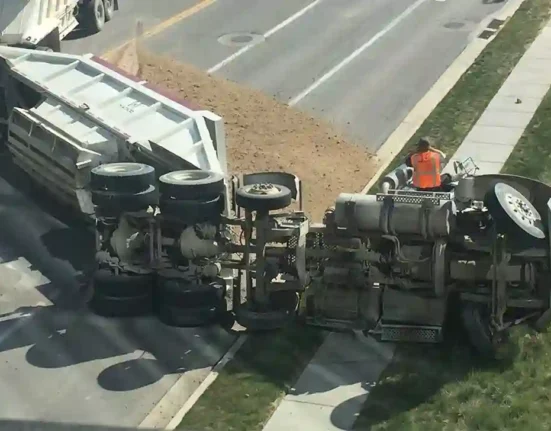Aviation accidents, though relatively rare, can result in catastrophic consequences for those involved. Whether it’s a plane crash, helicopter accident, or other aviation incident, these events often lead to serious injuries, fatalities, and complex legal challenges. When aviation accidents occur due to negligence, mechanical failures, or other factors, victims and their families may find themselves in a bewildering legal landscape. In such situations, the guidance and expertise of a personal injury lawyer are invaluable in navigating the complexities of aviation accident cases. In this article, we will explore the intricacies of aviation accidents, the challenges faced by victims, and the pivotal role that personal injury lawyers play in seeking justice and compensation for those affected.
Understanding Aviation Accidents
Aviation accidents encompass a wide range of incidents, including commercial airline crashes, private plane accidents, helicopter crashes, and even accidents involving unmanned aerial vehicles (drones). These incidents can occur due to various factors, including:
- Pilot Error: Mistakes made by pilots, such as errors in judgment, navigation, or communication, are among the leading causes of aviation accidents.
- Mechanical Failures: Malfunctions or failures in aircraft systems, engines, or components can lead to catastrophic accidents.
- Weather Conditions: Adverse weather conditions, such as severe turbulence, thunderstorms, or low visibility, can pose significant risks to aviation safety.
- Maintenance Issues: Inadequate maintenance or improper repairs can compromise the safety of an aircraft.
- Bird Strikes: Collisions between birds and aircraft can result in damage to the plane or its engines, potentially leading to accidents.
- Sabotage or Terrorism: Deliberate acts of sabotage, terrorism, or hijacking can also lead to aviation accidents.
The Impact of Aviation Accidents
The consequences of aviation accidents are often devastating, affecting victims and their families in profound ways:
- Fatalities: Aviation accidents can lead to tragic loss of life, leaving grieving families and communities in mourning.
- Injuries: Survivors of aviation accidents may suffer from severe injuries, including fractures, burns, spinal cord injuries, traumatic brain injuries (TBIs), and internal injuries.
- Emotional Trauma: Witnessing or experiencing an aviation accident can cause severe emotional distress, including post-traumatic stress disorder (PTSD) and anxiety.
- Property Damage: Aviation accidents can result in the destruction of aircraft, cargo, and property on the ground.
- Financial Burdens: Medical bills, loss of income, and other financial hardships can overwhelm victims and their families.
Legal Recourse for Aviation Accidents
When aviation accidents occur due to negligence, mechanical failures, or other factors, victims and their families may have legal recourse to seek compensation for their damages. Aviation accident cases are highly complex and often involve multiple parties, including airlines, aircraft manufacturers, maintenance crews, and more. Legal recourse typically involves pursuing claims through personal injury or wrongful death lawsuits, which may include the following elements:
- Liability: Establishing that one or more parties involved in the aviation accident owed a duty of care to the victims, breached that duty, and that breach directly resulted in the accident and injuries.
- Damages: Demonstrating the extent of the victims’ injuries and losses, which may include medical expenses, lost wages, pain and suffering, and other damages.
- Causation: Proving that the injuries sustained by the victims were a direct result of the negligence, mechanical failures, or other factors that contributed to the aviation accident.
The Role of Personal Injury Lawyers in Aviation Accident Cases
Aviation accident cases are among the most complex and challenging in the field of personal injury law. Victims and their families often face overwhelming physical, emotional, and financial burdens. Experienced personal injury lawyers who specialize in aviation accidents provide crucial support and advocacy:
- Case Evaluation: Personal injury lawyers assess the merits of potential aviation accident cases. They review the circumstances surrounding the accident, evaluate liability, and determine the viability of the claim.
- Gathering Evidence: Lawyers have the resources and experience to collect critical evidence, including accident reports, black box data, witness statements, expert opinions, and any other documentation relevant to the case.
- Determining Liability: Lawyers identify the responsible parties and establish liability for the aviation accident. This may involve proving negligence, mechanical failures, maintenance issues, or other factors contributing to the incident.
- Negotiating with Defendants and Insurers: In many aviation accident cases, compensation is sought through negotiations with the responsible parties or their insurance companies. Lawyers use their negotiation skills to seek a fair settlement on behalf of their clients, while also preparing for trial if necessary.
- Preparing for Trial: Aviation accident cases can be highly contentious, and lawyers must be prepared to take cases to trial if negotiations fail. They conduct thorough trial preparations, including witness interviews, evidence presentation, and courtroom strategy.
- Advising on Documentation: Lawyers guide clients on the importance of documenting their injuries, medical treatment, expenses, and other damages. Proper documentation is essential for establishing the extent of the harm suffered.
- Providing Emotional Support: Aviation accidents can be emotionally distressing for victims and their families. Lawyers offer support, compassion, and guidance to clients who may be dealing with significant physical and emotional distress.
Types of Damages in Aviation Accident Cases
In aviation accident cases, victims and their families may be entitled to various types of damages, depending on the circumstances and the impact of the accident. These damages can include:
- Medical Expenses: Compensation for past and future medical bills related to the aviation accident, including hospitalization, surgeries, rehabilitation, therapy, and mental health treatment.
- Lost Wages: Reimbursement for income lost due to the aviation accident, including missed work days, reduced earning capacity, or permanent disability.
- Pain and Suffering: Compensation for physical pain, emotional distress, and trauma resulting from the aviation accident and its long-term effects.
- Wrongful Death Damages: In cases involving fatalities, surviving family members may seek compensation for funeral and burial expenses, loss of financial support, and the emotional toll of losing a loved one.
- Property Damage: Coverage for property damage caused by the aviation accident, including damage to homes, vehicles, and personal belongings.
Conclusion
Aviation accidents are complex and can have devastating consequences for victims and their families. Injured parties and survivors deserve support, justice, and compensation for their injuries and losses. Personal injury lawyers who specialize in aviation accident cases play a crucial role in helping victims seek the legal recourse they need. Their expertise, dedication, and commitment ensure that those affected by aviation accidents receive the advocacy and representation necessary to navigate the intricate legal process. If you or a loved one has been involved in an aviation accident, consulting with a skilled personal injury lawyer is essential for seeking justice and compensation in the aftermath of this tragic event.



